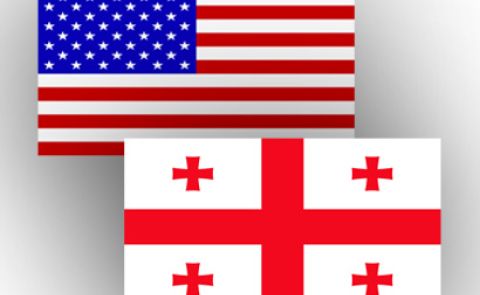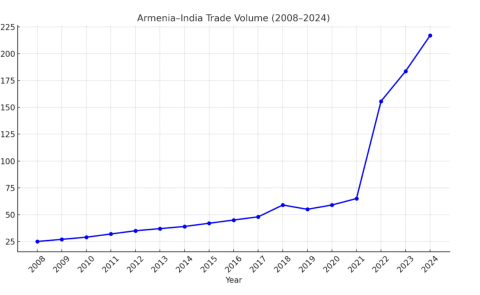
The Announced Constitutional Reforms in Armenia: Recent Developments

It has been almost a year that the last snap parliamentary elections in Armenia were held, followed by many promises and initiatives, including preparations for the 'audit' of the current Constitution. In the first half of 2022, Armenia continued experiencing turmoil in domestic politics: the President suddenly resigned, a new one was elected, and the parliamentary opposition went out to the streets to organize massive anti-government street protests, sit-ins, and other activities that are still going on blocking roads in the capital city. The opposition movement, to some extent, was provoked by new developments in the foreign policy of the country: Azerbaijan's 5-point offer containing recognition of Nagorno-Karabakh as part of Azerbaijan, the Prime Minister's rhetoric on this, Azerbaijan's subsequent invasion and further stay, in violation of agreements, in the part of Nagorno-Karabakh where Russia's peacekeeping forces are deployed, news on first steps towards rebuilding the Yeraskh-Julfa-Meghri-Horadiz railway, creation of a bilateral Armenian-Azerbaijani commission to deal with border delimitation and demarcation, and appointment of special envoys by Turkey and Armenia to discuss normalization of bilateral relations.
How did all these developments affect the revision of the Constitution? What has been done so far, and what is planned to be achieved by the end of 2022?
Updates on the constitutional audit
At the end of March, the Constitutional Reforms Council formed the Professional Commission on Constitutional based on competition, with the Prime Minister's approval of the candidates. At the first live joint session, the Council and the Commission announced a tentative list of topics for further discussions: the ways to improve articles on human rights, some articles in the electoral code, judicial system, justice, territorial administration, and local self-governance. Most importantly, it was decided that the system of government would be discussed first for the sake of coherence: without deciding upon the system of government, it would be impossible to revise the judicial system.
Thus, the Constitutional Reforms Council in Armenia is still elaborating its agenda that is reported to be ready at the end of the year at best. The Council is currently trying to understand how to ensure effective engagement of the public in developing the agenda. Throughout March, the Council accepted recommendations from the large public, which the Council and the Commission will further discuss. The opposition still does not participate in the Council's activities, which the head of the Council regrets, considering that the opposition could bring different agendas and constructive criticism to the discussion. Judging by insufficient media coverage of the Council's activities and lack of opinion polls on the issue, the constitutional amendments agenda could not distract people from developments in Armenia-Turkey, and Armenia-Azerbaijan negotiations, as the opposition claimed. It does not seem that the government is using the agenda for that purpose either.
Opposition is quite critical of the Commission. The media outlets, which do not support the government, published several articles arguing that the Commission consists of lawyers loyal to the ruling party, thus serving their interests (former deputy ministers of justice, family members, or co-partisans of the Council members, etc.).
System of government is one of the first questions to be discussed
If the Council members voted for keeping the parliamentary system three months ago, now they claim it will be discussed and even included in the agenda. There are both supporters and opponents of the shift towards a presidential or semi-presidential system within the Council; thus, it is difficult to say what the outcome of their discussions will be. The topic became widely discussed again after the inauguration of the new President of Armenia. In particular, a debate was held on the Public TV with the participation of representatives of parliamentary and non-parliamentary parties, including a member of the Constitutional Reforms Council. Though all the speakers agreed that the parliamentary system does not suit Armenia's political culture and party system yet, half of them stated it should stay since it is democratic and will also gradually develop political culture and party system. Besides, in their opinion, it is not wise to change the system whenever some flaws are detected. Others supported presidential or semi-presidential systems pointing out that they match with political culture and effective decision-making mechanisms in crisis times, particularly war. Beyond the TV debate, non-parliamentary forces (e.g., the parties “Bright Armenia” and “For the Republic”) still argue that presidential powers should be expanded through constitutional amendments. They argue that even though the parliamentary system proved its effectiveness after the war in Nagorno-Karabakh, it does not ensure accountability to the parliament.
Despite the lack of quantitative data, one can make the following assumption regarding public perceptions of the systems. Throughout the 30 years of independence, society used to have the President as the head of the state, who always appeared in the media, reacted to any developments in domestic or foreign policy, and "solved issues." Over the last decade, opinion polls have demonstrated that Armenians have trusted the President more than the parliament. This may explain society's disappointment with the "passive stance" or "non-interference" of the previous President of Armenia, who resigned early this year. Being the first to try on the role of the formal head of the state under the parliamentary system, he faced society's confusion with this new status of the President. Unlike his predecessor, the incumbent considers the President's constitutional competencies enough "to fully play his role as the head of the country.” He is also likely to support the Prime Minister in his controversial decisions on the peace agreement with Azerbaijan, rebuilding of the railway, and normalization of relations with Turkey, given his stance on unblocking borders with Turkey and Azerbaijan and the role of the President as someone who "should not create conflicts but look for compromises and find some solutions." If the public cannot live with this, being given an opportunity to shape the constitutional amendments agenda, it may go for changing the parliamentary system to the presidential one.
Apart from the President's status, the public can be for the shift to any other system so that more people in the political system share responsibility for major decisions in domestic and foreign policies, not just the Prime Minister. This is especially relevant after the 44-day war when everybody seemed accountable to the Prime Minister. In contrast, the situation was critical enough to be controlled by one person only. Such concerns have pushed the de-facto authorities of Nagorno-Karabakh to adopt a bill on switching from a presidential to a semi-presidential system in 2 years.
As for the possible impact of the opposition protest movement, the opposition does not mention the question of the system of government or constitutional amendments in its agenda. In addition, even if they put forward the motion of no confidence to Pashinyan, they will need the majority vote to pass the bill, which is impossible. Moreover, so far, the opposition has not been able to propose a leader who they would be able to offer as an alternative to Pashinyan, to offer alternatives to the current government’s policies (no specific program at the public gatherings), and lack of strategy plan (boycotting presidential elections at the parliament, and the inauguration without proposing their candidate).
What is next?
By the time the constitutional amendments agenda is ready, many events may happen in domestic and foreign policy that will not only overshadow but may also hinder the constitutional 'audit.' Two years ago, in the light of the 44-day war in Nagorno-Karabakh and subsequent developments, the predecessor of the Council was dismissed.
The most likely event is that Armenia will be forced to move from exploratory work to visible actions in the territory where the Armenian part of the Yeraskh-Julfa-Meghri-Horadiz railway is supposed to be rebuilt following the bilateral agreement. There is also a relatively low probability that Armenia may be pushed to create a peace agreement commission in response to that in Azerbaijan and start negotiations based on recognizing Azerbaijan's territorial integrity with Nagorno-Karabakh as part of it. Third, the Armenian government may sign agreements on opening the Armenian-Turkish border. Any of these three developments, however formal they are, may bring about a new wave of protests, and here is why. Opinion polls over the last year have shown that while almost 30%-40% of Armenians consider the impact of the opening of transport routes with Turkey and Azerbaijan on Armenia’s economic development as positive, direct transport links between Azerbaijan and Armenia is viewed by 50% as negative. In addition, over 80% perceive the operation of the transportation link between Azerbaijan and Nakhichevan as a threat to national security. Finally, the majority of the poll respondents agreed that Nagorno-Karabakh should be an independent state or join Armenia.
Even though general apathy is there, the opposition's movement has revived some patterns from the revolutionary times of 2018. Will it have any continuation or not? Let us wait and see. Public opinion polls show that discontent with the government exists: the nationwide polls conducted in the winter of 2021-2022 showed that over 40% of the population consider territorial and border issues/national security as the first or the second major problems Armenia is facing. Almost 70% believe they could influence decisions. Among responses to the question if Armenia was heading in the right or wrong direction, 'the wrong direction' occupied the first place with 46% votes. This indicator had been steadily increasing throughout 2021. Among state institutions the respondents were satisfied with, the parliament occupied the last place. At the end of 2021, the percentage of those satisfied with the Prime Minister's office decreased by 10% compared to before the elections. Over 30% are not satisfied with how officials are appointed.
This discontent may result in protest movements and the public supporting any shift in the system of government. Not having a good understanding of the specifics of the parliamentary system, people may opt for something different.
The only thing clear is that constitutional amendments may serve the Armenian government as a tool to fulfill its responsibilities in the framework of CEPA that requires further improvements in its judicial system. Moreover, compliance with CEPA requirements is a way to show the EU that Armenia is a reliable partner. The recent EU report on Armenia's performance in the framework of the CEPA has been positive. A visa liberalization dialogue is about to start between Armenia and the EU, partially due to Armenia's achievements in the CEPA implementation. This may be especially important now when Armenia is trying to keep balancing between the EU and Russia both economically and politically, and to engage the EU as a mediator in Armenia-Azerbaijan and Armenia-Turkey negotiations, in the framework of which Turkey and Azerbaijan impose their own agenda from the position of strength, and Armenia can hardly resist.
Contributed by Liana Avetisyan, Yerevan
Read also: To Change or Not to Change: Is Armenia Going to Change Its Constitution Again?
See Also


Armenia and India: Building New Bridges in Trade and Strategy

Between Tehran and Tel Aviv: Azerbaijan’s Neutrality Dilemma Amid Rising U.S.-Israel Tensions with Iran

From Neorealism to Neoliberalism: Armenia’s Strategic Pivot in Foreign Policy After the Nagorno-Karabakh Conflict

Georgia and Russia: New Turn in Bilateral Relations

